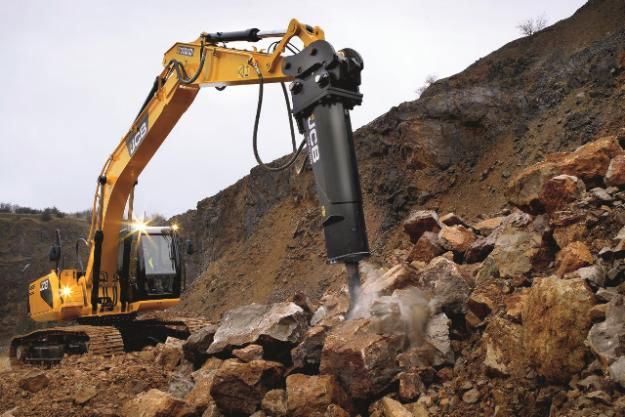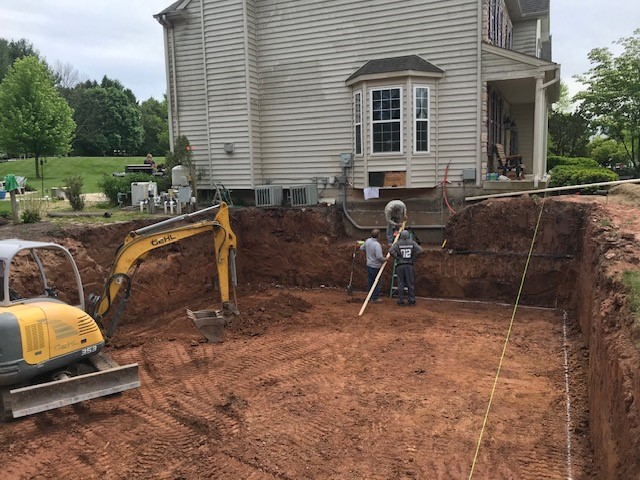Industrial Lancaster Trenching - Trenching Solutions for Organizations in Lancaster
Industrial Lancaster Trenching - Trenching Solutions for Organizations in Lancaster
Blog Article
Comprehensive Excavation Strategies: Mastering the Basics for Success
The cautious preparation, specific execution, and thorough interest to detail needed in excavation projects require a thorough technique that includes various essential elements. The true mastery lies not just in recognizing these principles yet in seamlessly incorporating them to navigate the complexities of excavation projects with finesse.
Understanding Excavation Job Preparation

Effective excavation jobs are improved the structure of complete and meticulous planning. The first stage of any kind of excavation job is the preparation phase, where essential choices are made that can considerably influence the end result of the project. Throughout this stage, it is vital to gather all pertinent information regarding the website, including topographical surveys, dirt structure, and any type of possible threats that may exist. Recognizing the project range, budget plan, and timeline constraints is critical for developing a detailed excavation strategy that makes sure the task's success.
One secret aspect of excavation project planning is the growth of a comprehensive timeline that details the sequence of landmarks, activities, and due dates. This timeline works as a roadmap for the project team, allowing them to track progression and make necessary changes to ensure the project remains on schedule. Additionally, a distinct budget plan that represents all costs, including tools leasing, labor expenses, and materials, is crucial for avoiding expense overruns and hold-ups. By thoroughly taking into consideration all these variables throughout the drawing board, excavation projects can be executed efficiently and effectively, causing successful outcomes.
Soil Analysis and Website Analysis
Carrying out detailed dirt analysis and site assessment is a vital action in the prep work stage of any type of excavation task. Dirt analysis involves identifying the make-up, framework, and homes of the dirt at the excavation site. This information is important for recognizing the dirt's bearing capacity, dampness material, and potential for disintegration, which are vital consider establishing the excavation techniques and tools required for the project.
Site assessment exceeds dirt evaluation and encompasses a more comprehensive analysis of the overall website problems. This examination includes recognizing any kind of possible threats, such as underground utilities, environmental issues, or unpredictable terrain, that can influence the excavation procedure. By completely evaluating the website, task managers can develop reliable excavation strategies that focus on safety, effectiveness, and environmental management.
Making use of advanced technologies like ground-penetrating radar, dirt tasting, and drone studies can improve the accuracy and effectiveness of soil analysis and website examination. Spending time and resources in these preliminary steps can inevitably save time and stop costly delays or difficulties during the excavation procedure.
Equipment Selection and Application
Reliable excavation projects count heavily on strategic devices choice and application to guarantee optimal performance and productivity. Choosing the ideal equipment for the job is important in maximizing performance and lessening downtime. Variables such as the kind of soil, depth of excavation, and task scope play a considerable duty in figuring out the most suitable devices for the task available.

Along with choosing the appropriate devices, appropriate usage is essential to job success. Operators should be educated to manage the tools safely and successfully - lancaster trenching. Regular upkeep checks and prompt fixings aid avoid failures and ensure consistent performance throughout the task
Precaution and Regulations Conformity
In the world of excavation projects, prioritizing precaution and compliance with guidelines is paramount to making sure a secure and lawfully sound operational find more setting. Precaution incorporate a range of techniques, consisting of performing detailed website analyses, carrying out proper signage and obstacles, and providing ample safety and security training for all personnel associated with the excavation procedure. Adherence to policies, such as OSHA needs in the United States, guarantees that the excavation task fulfills the required requirements to protect workers, onlookers, and the surrounding atmosphere.

Surveillance Progression and Adjusting Methods
How can project supervisors properly track the innovation of excavation tasks and adapt their approaches appropriately to enhance end results? Surveillance progress is important for guaranteeing that excavation projects remain on track and satisfy deadlines.

Conclusion
Finally, understanding the principles of extensive excavation approaches is crucial for the success of any job. By understanding job preparation, analyzing soil and website conditions, selecting suitable tools, following safety and security laws, and checking progression, project supervisors can ensure a smooth and reliable excavation procedure. Carrying out these strategies will certainly lead to successful outcomes and lessen possible dangers or troubles during the excavation job.
The first stage of any type of excavation task is the planning phase, where crucial choices are made that can dramatically influence the outcome of the project. Recognizing the project extent, budget, website here and timeline constraints is vital for producing a detailed excavation plan that makes sure the job's success.
How can predict managers effectively track the advancement of excavation jobs and adapt their approaches as necessary to enhance outcomes? By very closely keeping track of progression and being willing to adjust strategies, job supervisors can boost the overall success of excavation tasks.
By comprehending task preparation, examining soil and site problems, choosing suitable equipment, conforming with safety policies, and keeping track of development, project supervisors can ensure a effective and smooth excavation procedure.
Report this page